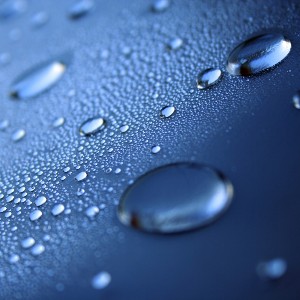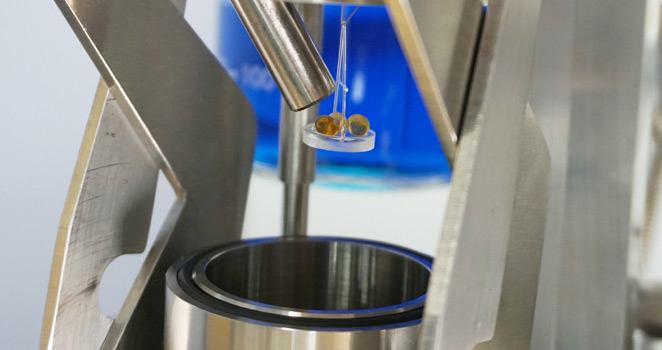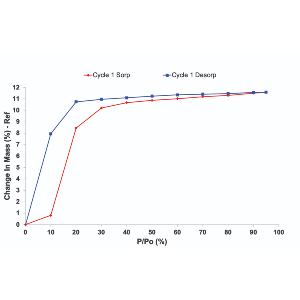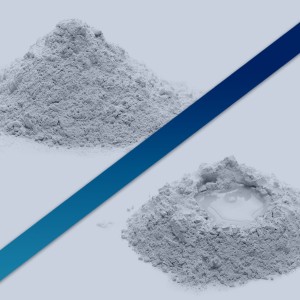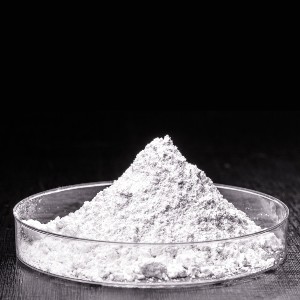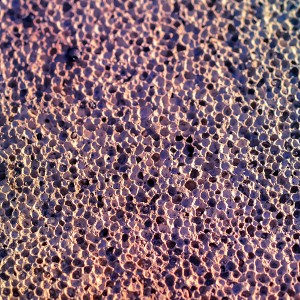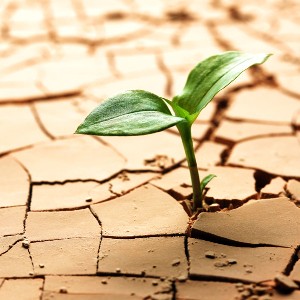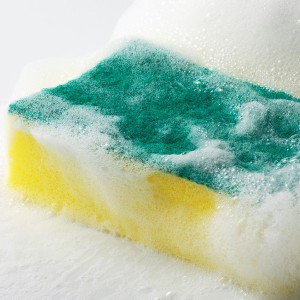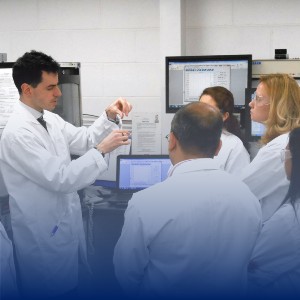This workshop is organized in collaboration with the University of Manchester. Advanced sorption techniques can be essential characterization tools in the research or catalysts, porous solids, and medical care materials. In this session, we give you a deep understanding of advanced gravimetric sorption techniques, such as Dynamic Vapor Sorption (DVS) and Inverse Gas Chromatography (iGC), and how they can be employed to gain unparalleled detail and accuracy in materials research.
Along with special guest speaker Dr. Xiaolei Fan (University of Manchester) exploring some of his recent research, the workshop features two leading Sorption Science experts from Surface Measurement Systems, Dr. Vladimir Martis and Meishan Guo, who share their expertise.
This in-depth workshop discovers how advanced sorption techniques can be used to gain accurate and reliable data on the interaction between different medias and surface and bulk properties of materials. This was explored by one of the world’s leading experts in sorption science, Professor of Particle Science at Faculty of Engineering, Department of Chemical Engineering, Imperial College London, and Founder & MD of Surface Measurement Systems, Prof. Daryl Williams.
Though chromatographic methods tend to be associated with analytical chemistry as well as separations science, chromatographic approaches are powerful physical chemistry methods for understanding interactions between solids and solutes, both in the gas and liquid phases.
Organized in coordination with the Collaborative Research Centre 1411 Design of Particulate Products, FAU – Erlangen, this presentation reviews a number of the physical chemistry based chromatographic approaches, and will give a number of examples of these methods in operation including:
- Inverse gas chromatography determination of adsorbent surface areas including freeze dried solids, at room temperature and room humidity
- Determination of diffusion constants for porous catalysts for liquid phase reactants using zero column length chromatography
-Protein-protein interactions in solution and aggregation propensity using self interaction chromatography to determine second virial coefficients
The fundamental physical processes behind the hysteresis phenomena in keratin water sorption isotherms are still uncertain. To examine the role of swelling in this process, hair was modified via reduction and dyeing to measure the impact of reduced inter-keratin bonding on hysteresis. Water sorption isotherms were measured using Dynamic Vapour Sorption, and fibres were characterised using Nuclear Magnetic Resonance. Hair fibres with reduced crosslinks from damage procedures showed a higher amorphous content, indications of glass transitions at lower relative humidity, and faster relaxation properties, resulting in distinctly different hysteretic properties to that of untreated hair. This work concludes that hysteresis is dependent on the swelling ability of keratin, which allows greater plasticisation of glassy regions in the fibre by water. This swelling is strongly governed by disulphide bond content.
For Contract Research Organizations (CRO), being able to offer the most accurate, reliable, and flexible services is an essential part of the business plan. At Surface Measurement Systems we develop and manufacture the world’s leading materials characterization instrumentations, based on our own ground breaking techniques and innovations. Designed exclusively for the CRO community, this workshop will explore the characterization of various materials using our two core techniques, Dynamic Vapor Sorption and Inverse Gas Chromatography. With examples from the food & pharma industries, the latest research will be used to demonstrate the benefit these techniques offer to your customers.
This workshop demonstrates the application of vapour sorption solutions as a rapid characterisation technique that considers several environmental and industrial conditions for characterising a wide range of materials.
Surface Measurement Systems and the Johannes Gutenberg-Universität Mainz collaberated on this special online event, featuring three in-depth presentations exploring the latest research, case studies, and findings in pharmaceuticals. This workshop offers unparalleled insight into the use of sorption science techniques in pharmaceutical formula development.
Agenda:
DVS analysis of different citric acid excipients for pharmaceutical formulation of effervescent tablets
with Moritz Rosch, Johannes Gutenberg-Universität Mainz; Max-Planck-Institut für Chemie
Evaluation of Moisture Protection in Solid Dosage Forms
with Johannes Blechar, Johannes Gutenberg-Universität Mainz
The Effect of Temperature and Moisture on Sorption properties of Microcrystalline Cellulose
with Meishan Guo, Surface Measurement Systems
En este webinar, la estudiante de postgrado (PhD) Paola Saenz en su ultimo año en el Imperial college, nos da una breve charla acerca de los métodos experimentales mas comunes para la captura de CO² en presencia de vapor de agua. En particular, dos metodos experimentales seran descritos: La adsorcion dinamica de vapor y las curvas de ruptura.
When considering any material for use in construction, knowing how it reacts to moisture is essential to architectural integrity and safety. Dynamic Vapor Sorption, the innovative sorption analysis technique pioneered by Surface Measurement Systems, provides unparalleled insight and accuracy into how various building materials react to moisture under varying conditions.
This free-to-attend webinar explores how the DVS method is employed in the physico-chemical characterization of wood and other building materials, and the insights it provides into how they react to moisture.
This webinar is based on a recent study by Elwin Hunter-Sellars et al. and focuses on the removal of volatile organic compounds by porous inorganic solids. A range of pore size distributions and chemistries were assessed at room temperature and relative humidity (RH) values from 0 to 70% to reflect real-world conditions similar to those of indoor air.
Dry removal performance appeared to be dependent on the surface area of adsorbents and, for polar compounds, the relative hydrophobicity of the material. Performance of sorbents with hydrophilic surface chemistry, such as silica gel and molecular sieve 13X, decreased drastically with small increases in pre-exposed humidity. Activated charcoal and high-silica faujasite Y retained their capacities for toluene in relative humidities up to 50% and 70% respectively, which highlights their selectivity for non-polar species due to hydrophobic pore structure and low water vapor uptake.
Moisture content and sorption properties of pharmaceutical ingredients are essential components in the research, development, and eventual manufacture of any new pharma product. Using advanced vapor sorption techniques, researchers can achieve unparalleled detail and accuracy in this area, and gain valuable insights into their ingredients. It’s no wonder the world’s top 20 pharmaceutical companies employ the DVS method.
When Food & its ingredients are capable of absorbing up to 50% by mass of moisture from the air, knowing the sorption properties of your food product is essential to the R&D process. In this, Dynamic Vapor Sorption provides an unparalleled level of insight. Invented by Surface Measurement Systems’ Founder, Dr. Daryl Williams, the DVS technique enables researchers incredible levels of detail and accuracy in the physico-chemical characterization of solid-state materials.
